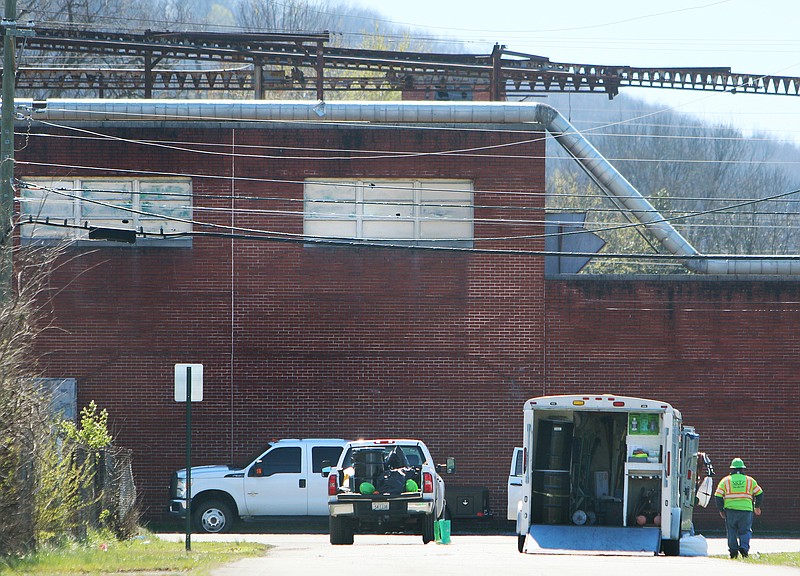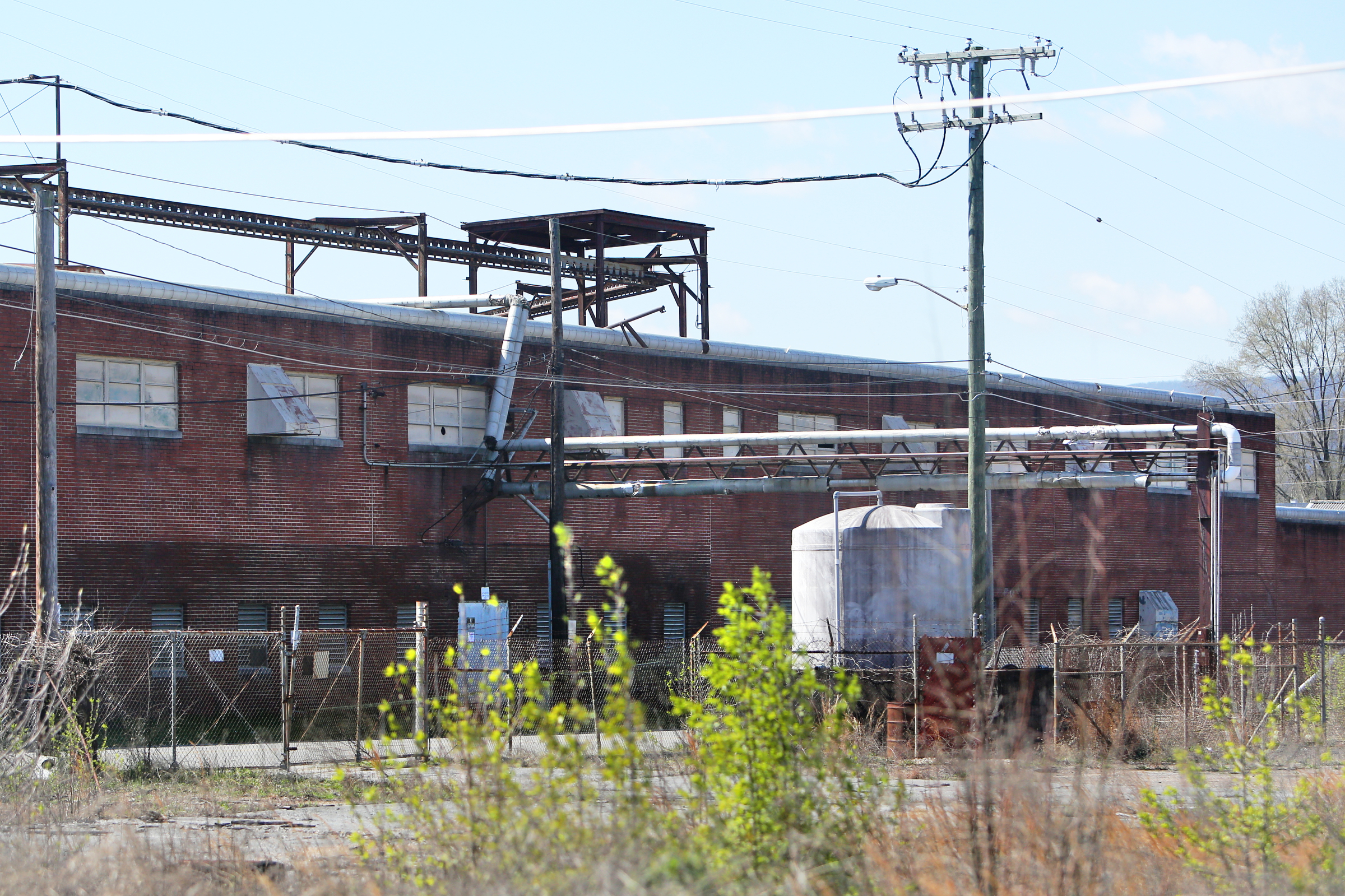The Environmental Protection Agency approved a plan to remove transformers from the Coats American Building in Rossville, Georgia, where a toxic chemical leaked this spring.
The agency signed off on the plan Monday afternoon, Walker County spokesman Joe Legge said. The plan is a key step in cleaning up the plant, located on Maple Street in the center of Rossville. The county owns the building and hopes to sell it, and Rossville city officials believe the area could be a site of revitalization.
Emergency responders flocked to the Coats American building on March 11 after a neighbor reported an oily sheen on water in a ditch down the road from the plant. Investigators determined vandals broke into the building and turned over transformers several times over several weeks, pulling the copper wire out of the machines to sell.
In the process, oil leaked from the transformers into a drainage catch basin in a courtyard of the property. The oil flowed into a ditch. When responders came to the plant, they found 10 transformers tipped on their sides.
The oil contained some polychlorinated biphenyls, a chemical that can prevent the transformers from catching fire. Studies have linked PCBs to cancer, reproductive problems and neurological development issues in children.
After the spill, emergency responders placed absorbent booms in several areas around the plant, hoping to suck in all the PCBs. The workers also inserted inflatable plugs in the plant's drainage outlets to stop any more of the chemical from leaking.
Members of Georgia's Environmental Protection Division and Tennessee's Department of Environmental Conservation later said they were satisfied with the cleanup team's efforts. A TDEC worker said the agency found no adverse effects on fish downstream.
Two days after the spill, environmental workers collected water samples in four locations: the drainage basin where the oil leaked, a containment area, an outfall down the street and a nearby stream. Of those, the drainage basin had the highest concentration of PCBs, with the chemical present at 48 milligrams per liter. The containment area had 16 milligrams of PCBs per liter, and the other two spots had less than a tenth of a milligram per liter.
With the EPA's approval this week, TCI of Alabama can haul off the transformers. Company President George Jackson said his team will bring them to Pell City, Alabama, where they will clean the shells of the machines and smelt the metal down. It can then be recycled.
"They could become the paneling on the car you drive," Jackson said.
TCI of Alabama also will dispose of the metal core inside the transformer, hauling it to a chemical waste landfill.
After they take away the transformer, workers will destroy a concrete pad where the transformers once were and analyze sediment in the drainage ditch.
The same week the oil spilled in March, the county's development authority planned to review the purchase of the plant. The board put those plans on hold until the site could be cleaned up.
The plant was a manufacturing hub for 90 years, mostly for the making of industrial sewing thread. But the 350,000-square-foot site has been empty since 2000. The county took over the property in 2007.
The area could be the site of redevelopment in Rossville, an area that has a reputation for old buildings and shuttered businesses. Across the street, developers bought the 1 million-square-foot Peerless Woolen Mill last year. The federal government deemed the area an "Opportunity Zone" earlier this year, allowing the city to offer tax breaks in exchange for investments there. Also, the city council passed a new downtown overlay, hoping to make the area prettier and further encourage business development.
Meanwhile, Rossville police arrested three people in connection with the copper theft that created the dangerous spill. They charged Jacob Mark Buckner, Christopher Shane Nichols and Travis Lee Prater.
In August, Buckner and Prater pleaded guilty to counts of burglary and theft by taking. Nichols, whose case is still active, faces those two charges, as well as counts of criminal damage to property and interference with government property.
Detective Dave Scroggins said they linked the three men to sales of copper at Lookout Recycling on West Gordon Avenue. He said the copper was flat, about three-fourths of an inch wide with notches cut in it. He said that matched the type of copper that goes into transformers.
"It's cut in a unique way," Scroggins said.
Contact staff writer Tyler Jett at 423-757-6476 or tjett@timesfreepress.com. Follow him on Twitter @LetsJett.

